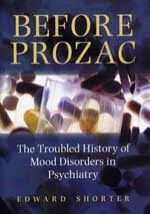In 701 B.C. the Assyrian empire was in its ascendancy. It had already vanquished the kingdom of Israel to the north including the capital at Samaria. It then prepared an assault on Judah and its capital at Jerusalem.
But in one of those significant events that changes the course of world history, Assyria was repelled. Jerusalem was saved until 586 B.C. when the Babylonians sacked the city, forcing its leadership class into exile.
Henry Aubin, in a major feat of scholarship, determines that Jerusalem was aided by a Kushite army from Africa which had marched northeast from the Nile valley. While the Bible attributes the Assyrian retreat to an angel and secular commentators cite pestilence, Aubin, in a meticulously documented work, demonstrates that an alliance with the African nation of Kush bolstered Jerusalem’s defences.
Kush, also known as Nubia, was located in what is now southern Egypt and northern Sudan. A monarchy that existed for more than 1000 years, from 900 B.C. to A.D. 350, Kushites held sway over Egypt from 712 B.C. to about 660 B.C. Of Egypt’s 31 dynasties, this, the 25th Dynasty, is the only one that all scholars agree, was black.
The commander of the Kushite expeditionary force was Taharqa (or as the Bible calls him Tirhakah). This Kushite prince, who had his own interests in halting Assyrian expansion, likely caught the aggressors by surprise as they prepared their siege of Jerusalem.
Aubin offers a thrilling military history and a stirring political analysis of the ancient world. He also sees the event as influential over the centuries.
The Kushite rescue of the Hebrew kingdom of Judah enabled the fragile, war-ravaged state to endure, to nurse itself back to economic and demographic health, and allowed the Hebrew religion, Yahwism, to evolve within the next several centuries into Judaism. Thus emerged the monotheistic trunk supporting Christianity and Islam.

Edward Shorter, American-born, who earned his PhD at Harvard is a renowned scholar and author. His plethora of books include the classic work A History of Women’s Bodies (Basic), A History of Psychiatry from the Era of the Asylum to the Age of Prozac (Wiley) a new works, The Historical Dictionary of Psychiatry (Oxford University Press), Written In The Flesh: The History of Desire (University of Toronto Press), and Shock Therapy with David Healy (Rutgers University Press). He is a professor of history at the University of Toronto.
“A witty foray into the worlds of psychiatry and pharmacology.”
Library Journal
Oxford University Press 2009
Before Prozac
The Troubled History of Mood Disorders in Psychiatry
An unsettling look at modern psychiatry, revealing how greed, lax regulation, and academic infighting have set the field back fifty years.
Psychiatry today is a barren tundra, writes medical historian Edward Shorter, where drugs that don’t work are used to treat diseases that don’t exist. Based in part on unprecedented access to federal archives and on extensive interviewing, Shorter illuminates this dismal landscape in a revealing and provocative account of why psychiatry is losing ground in the struggle to treat depression.
The book looks at such culprits as the pharmaceutical industry, which is not inclined to market drugs once the patent expires, leading to the endless introduction of new – but not necessarily better – drugs.
But at the center of the story is an unexpected villain: the FDA, the very agency charged with ensuring drug safety and effectiveness. Shorter describes how the FDA permits companies to test new products only against placebo. Beating sugar pills can ensure a license – whether or not a drug is actually better than (or even as good as) current medications. Drugs that may be superior but have lost patent protection are thus swept from the shelves.
The book also examines the FDA’s early power struggles against the drug industry, an influence-grab with little concern about science, and which left many effective drug classes under-prescribed, despite the fact that under careful supervision they are better at treating depression, with fewer side effects that the newer drugs in the Prozac family.
Shorter also castigates academia, showing how two forms of depression, melancholia and nonmelancholia – “as different from each other as chalk and cheese†– became squeezed into one dubious classification, major depression, which was essentially a political artifact born of academic infighting.
An astonishing and troubling look at modern psychiatry, Before Prozac is a book that is sure to spark controversy for years to come.